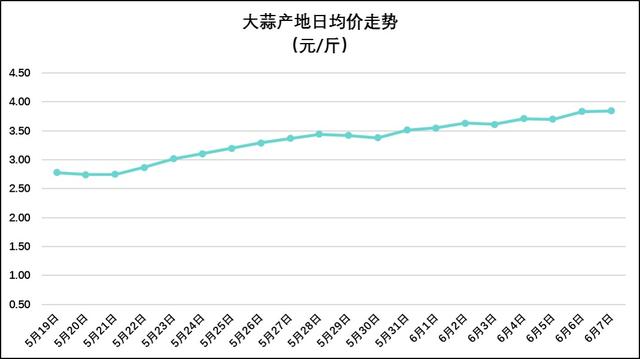Attention | Health insurance for urban and rural residents in 11 provinces will be under the overall management of the Ministry of Human Resources and Social Affairs, and the settlement of medical treatment in different places will be on the fast track.

This article is compiled from the website of the Chinese government, the Huaxia Times and the official website of the Ministry of Human Resources and Social Security of the people's Republic of China.
At the end of May, the Ministry of Human Resources and Social Affairs announced that 11 provincial units across the country have made it clear that the integration of medical insurance for urban and rural residents will be managed by the people's social department. Recently, Huang Huabo, deputy director of the Social Insurance Management Center of the Ministry of Human Resources and Social Security, said in an interview with the media, "Interprovincial hospitalization expenses can be directly settled and have been driven into the fast lane, and the settlement of medical treatment in different places will be realized as soon as possible."
Huang Huabo said that the Ministry of Human Resources and Social Affairs has formulated a "three-step" work plan. First of all, promote and improve the overall planning at the prefectural and municipal level to achieve no different places at the prefectural and municipal level; the second step begins to promote the construction of the networked settlement system within the province to achieve networked settlement within the province; the third is to build a national networked settlement system.
Talking about the specific operation process, Huang Huabo said that the Ministry of Human Resources and Social Affairs will start the development of the corresponding "Golden Insurance Phase II" project system, that is, the national medical insurance network system, if the national medical insurance network is realized, rural residents who participate in the "new rural cooperative medical system" can also enjoy the relevant "benefits". At the same time, if the NCMS participants in the insured land go to places where there is no NCMS to see a doctor, the plan currently under preliminary consideration is that they can exchange information with the social insurance system through the NCMS information system in the insured land, and then realize remote medical information transmission and direct settlement with the help of provincial and national networked settlement systems and settlement centers.
As early as before the two sessions this year, the Chinese government network launched the "I say a word to the Premier" netizens' advice campaign, which received more than 180000 messages at that time. On this basis, the online vote "I ask questions to the Prime Minister" held during the two sessions, among which "speeding up the national networking of health insurance" topped the list with a super-high attention rating of 10.98 million votes. At the same time, at the press conference of the premiers of the two sessions, Premier Li Keqiang said when talking about the timetable for promoting the national network of health insurance, that the government is determined to promote the national network of health insurance, on the basis of basically solving the direct settlement of medical treatment in different places in the province this year, and strive to spend two years to directly settle the hospitalization expenses of the elderly in different provinces, so that the problem of reasonable settlement in different places will no longer become a pain point for the masses.
Prior to this, China's medical insurance has been in a situation of dividing the border. The Ministry of Human Resources and Social Affairs manages the medical insurance for urban workers and residents, while the Health and Family Planning Commission is responsible for the management of the new rural cooperative medical system (hereinafter referred to as the "new rural cooperative medical system") covering 800 million farmers. the situation of partition and rule leads to the fragmentation of the management system, high management costs and great differences in treatment, and the management right "three guarantees in one" has always been widely expected.
To this end, as early as 2013, the General Office of the State Council issued a document requiring the Central editorial Office to be responsible for the integration of urban workers' basic medical insurance, urban residents' basic medical insurance and the new rural cooperative medical system by the end of June of that year.
At the beginning of this year, the State Council announced the opinions on the Integration of the basic Medical Insurance system for Urban and Rural residents (hereinafter referred to as the "opinions"), which made it clear that plans and arrangements should be made for the integration of medical insurance for urban and rural residents by the end of June 2016. a clear timetable and roadmap have been made, and specific implementation plans have been issued by the end of December 2016. The "opinions" clearly require that in the process of integration, we should "raise the level of overall planning, implement overall planning at the prefectural and municipal level in principle, and encourage areas with conditions to implement overall planning at the provincial level."
According to the statistics of Jin Weigang, director of the Social Security Research Institute of the Ministry of Human Resources and Social Affairs, 90% of prefecture-level cities and 60% of county-level cities have also been managed by the Renshe department.
Since then, the Ministry of Human Resources and Social Affairs has continuously voiced its views on medical insurance for urban and rural residents, and disclosed for the first time at the end of May that after the "opinions" of the State Council were issued in January this year, Hebei and Hubei took the lead in making it clear that the medical insurance system for urban and rural residents would be uniformly managed by the people's social department. In addition to the eight provinces (autonomous regions and cities) and the production and Construction Corps of Tianjin, Shanghai, Zhejiang, Shandong, Guangdong, Chongqing, Ningxia and Qinghai, which have realized the overall planning of medical insurance in urban and rural areas throughout the province before the publication of the "opinions," more than a dozen areas across the country have realized the unified management of the three medical insurance items in urban and rural areas by people's and social departments, eliminating institutional obstacles.
- Prev

2016-6-7 garlic price market: is there any support after rising 20 days in a row?
2016-6-7 garlic price market: is there any support after rising 20 days in a row?
- Next

In addition to land, there are three things in the countryside that will be very valuable!
In addition to land, there are three things in the countryside that will be very valuable!
Related
- A course of planting techniques and methods on how to grow carrots
- How to plant the latest tulips?
- Is it better to pick tea in the morning or in the afternoon? When is the best time for tea to be picked? what is the third or fifth tea?
- Launch Yuanxiao Happy combination Haocha + Tea Yuan healthy Taste
- Penghu Tourism "Fireworks 20 Parade with You"
- 2022 West Lake Happiness holds "Digital Revitalization Voucher" and draws iphone13 and laptop.
- Banqiao Fuzhou social houses are designed to change start-up combined with police elimination to create a safe and livable environment
- The convenient measure of "mechanical weeding" in Xinbei has been abused and the Agriculture Bureau has imposed heavy penalties on the illegal land consolidation.
- Changgeng University Joins Hands with Four Memory Factories to Rescue Memory Talent Shortage
- The list of Taiwan's top 100 MVP managers is listed by the Director-General of the Farmers' Association of Sanxia District.

